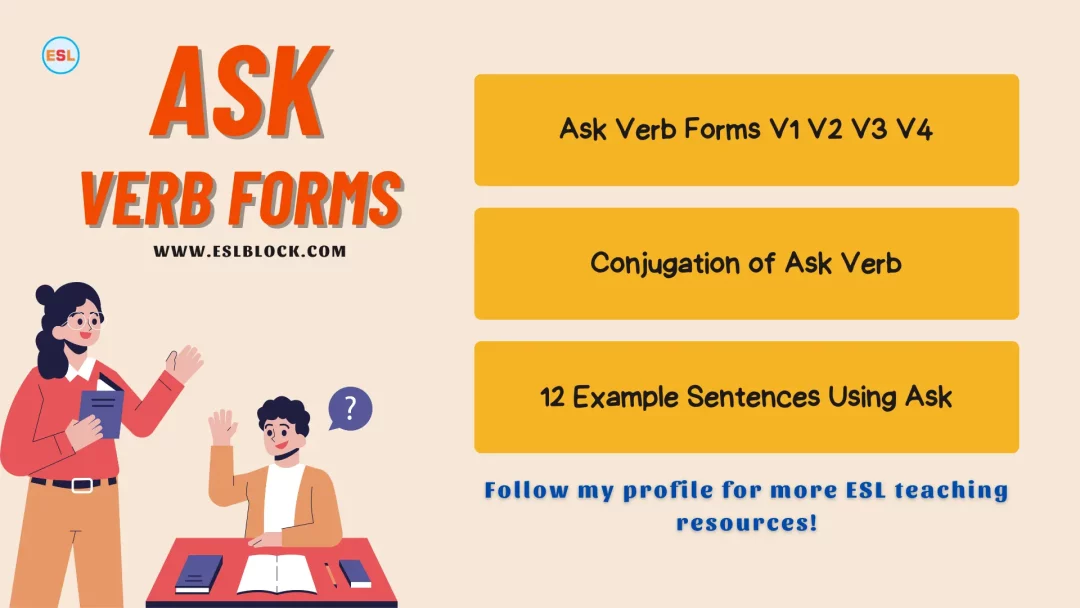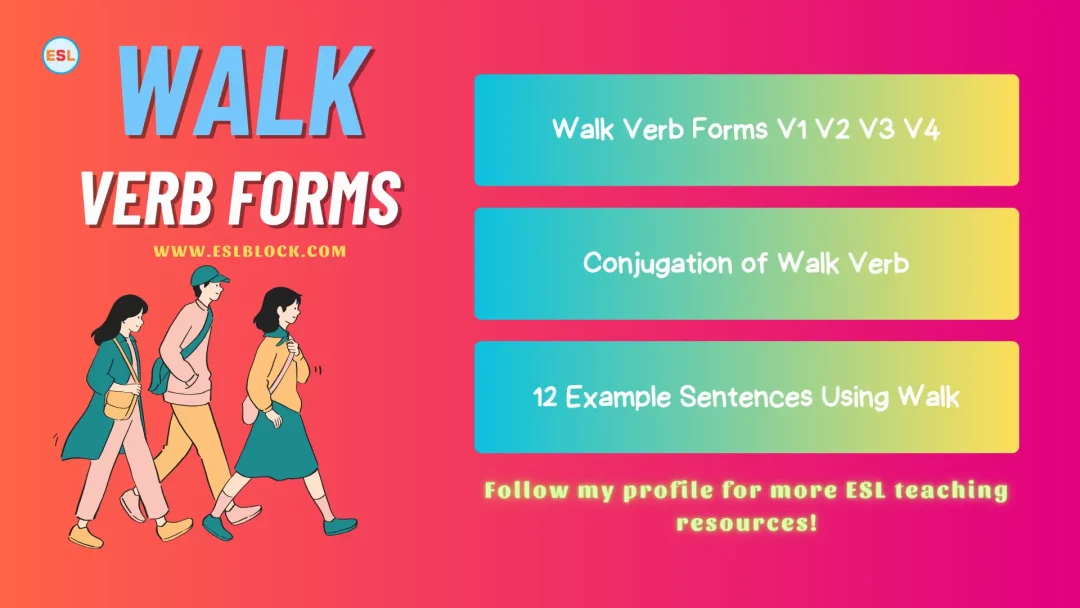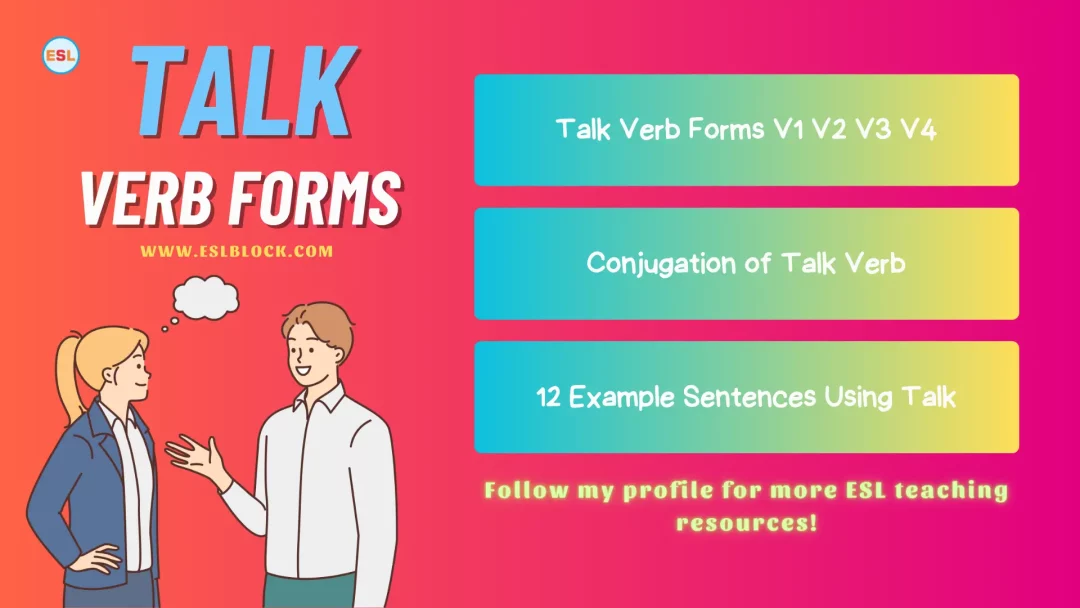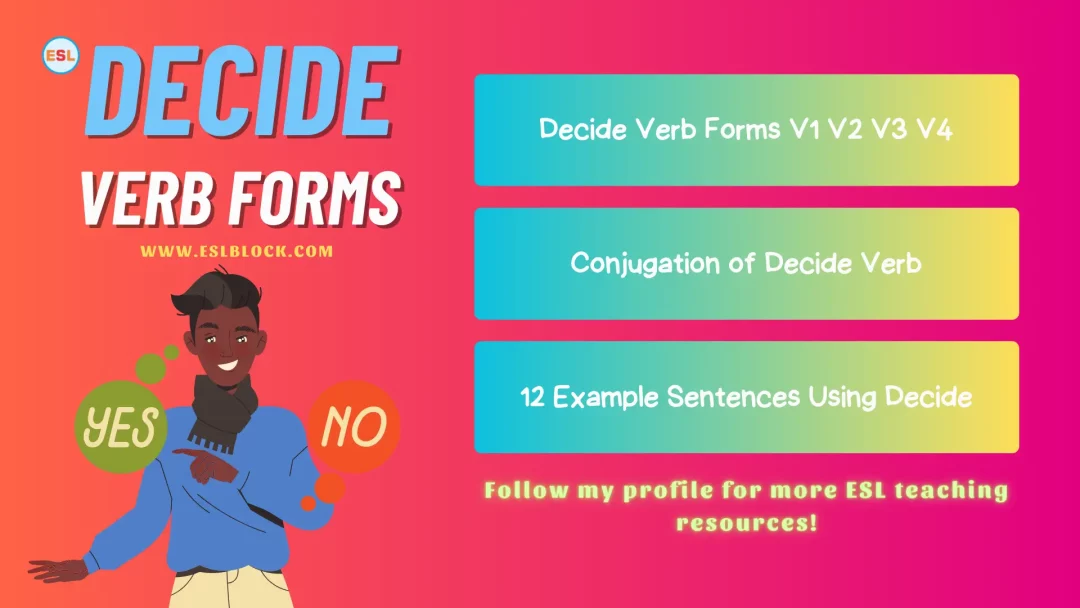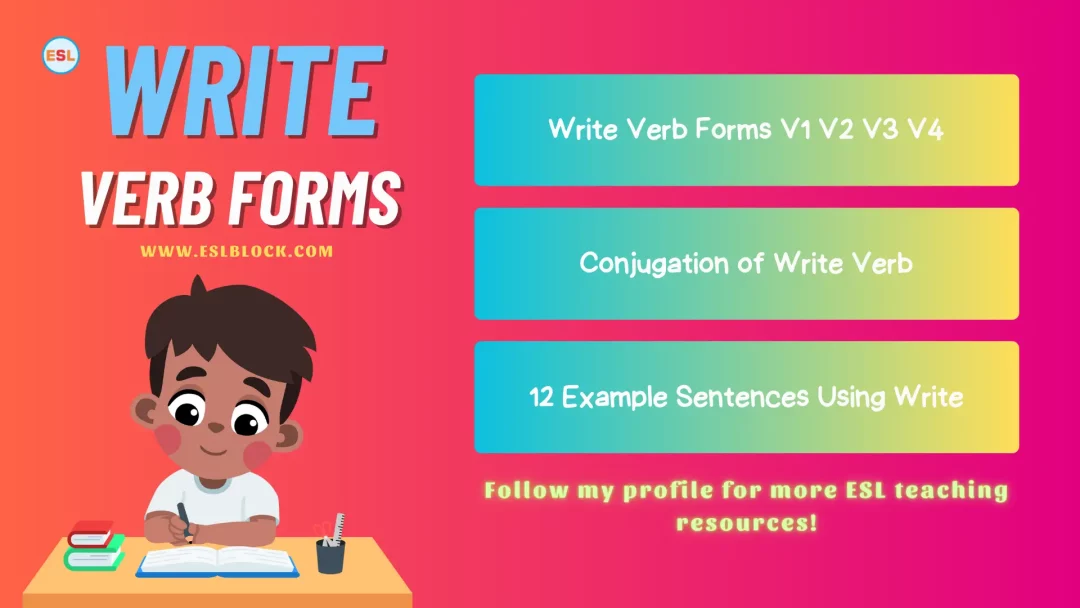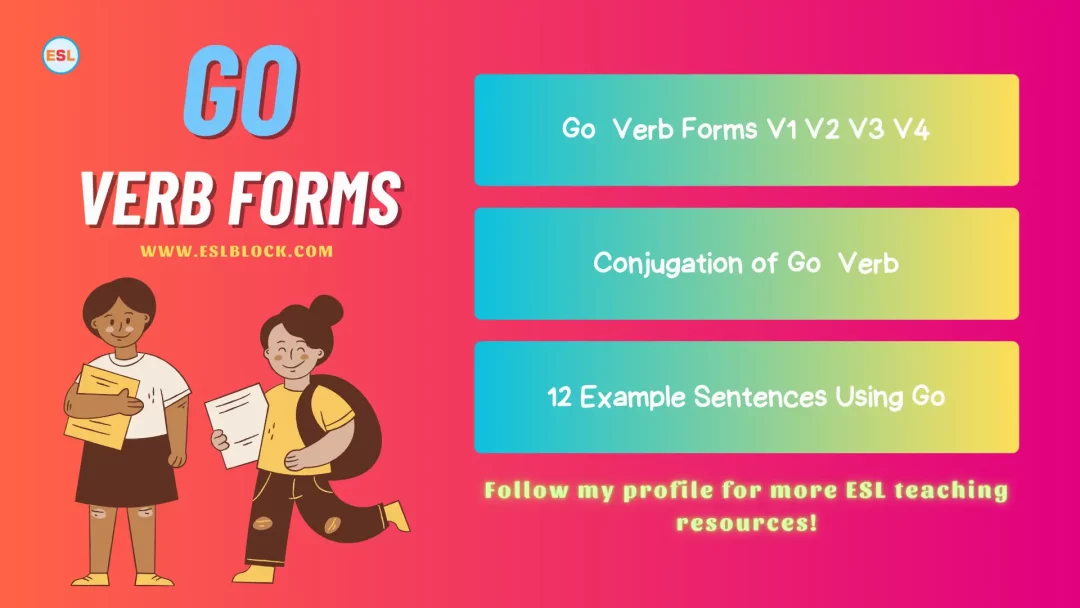Say Verb Forms – Say Past Tense, Say Present Tense, Say Future Tense
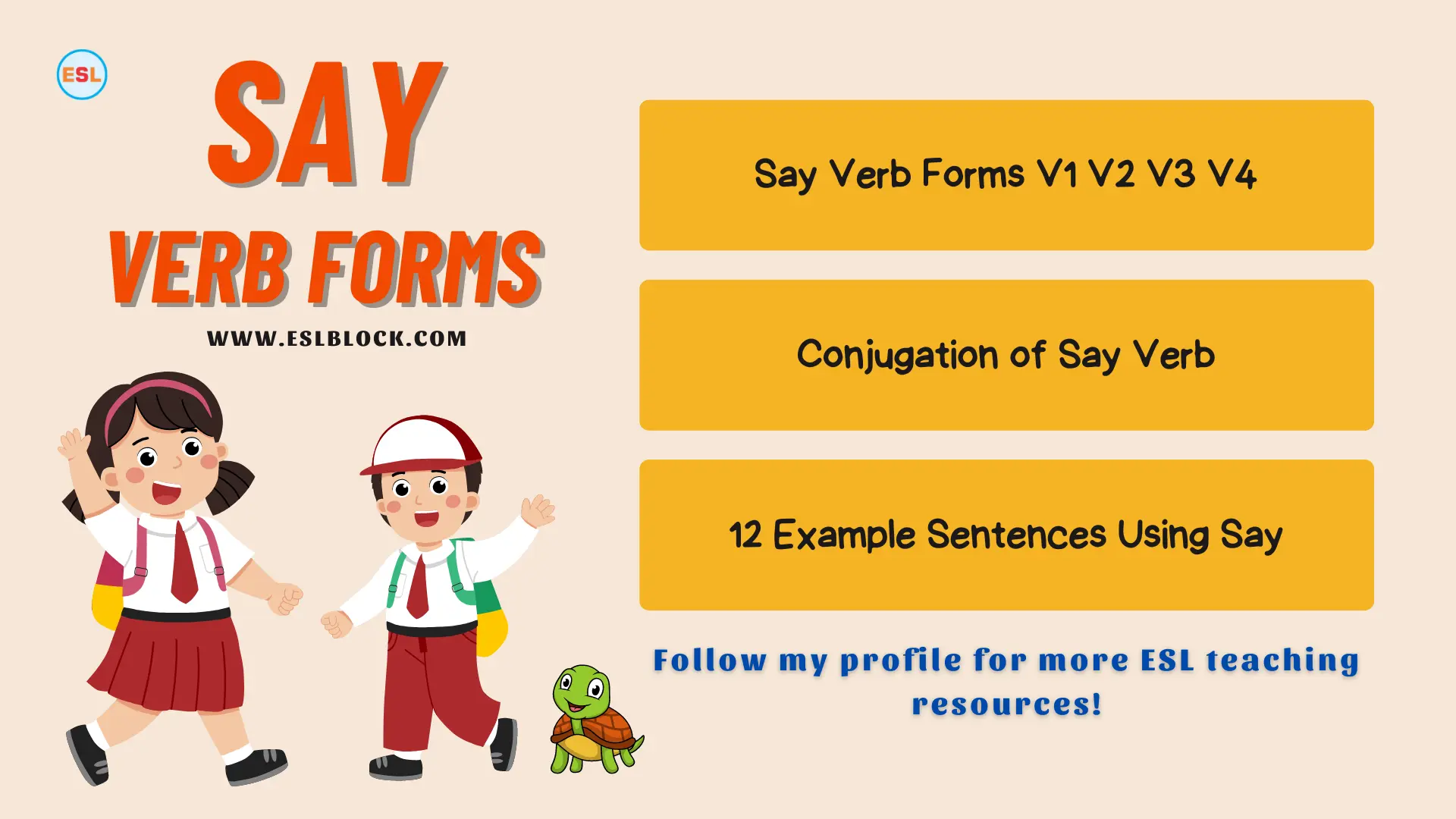
![]()
Embark on a linguistic odyssey as we unravel the nuances of expression through the lens of “Say Verb Forms.” Language, with its dynamic nature, allows us to articulate thoughts, feelings, and ideas, and understanding the various forms of the verb “say” enhances our ability to communicate across Past, Present, and Future Tenses. Join us in this exploration of linguistic resonance, where every utterance carries a temporal imprint.
Verified for accuracy, say verb forms listed here, all have been sourced from reputable references. Source: Your Info Master.
The art of saying is woven into the fabric of human communication. From recounting past conversations to articulating present thoughts and projecting future dialogues, the verb “say” becomes a vessel for our expressions. In this journey, we’ll navigate through time and linguistic landscapes to decipher the beauty of “Say Verb Forms.”
Read also: Play Past Tense
Say Verb Forms V1 V2 V3 V4
Journey through the linguistic landscape of “Say Verb Forms” with this table, spotlighting the core quartet: Infinitive (V1), Past Simple (V2), Past Participle (V3), and Present Participle (V4). Each form adds a layer to the narrative, illustrating the versatility of the verb “say” in different contexts.
| Infinitive (V1) | Past Simple (V2) | Past Participle (V3) | Present Participle (V4) |
|---|---|---|---|
| to say | said | said | saying |
Conjugation of Say Verb
Conjugation, the harmonious dance of language, breathes life into the verb “say.” Let’s dive into the Conjugation of “Say” in English, tracing its rhythmic cadence through Past, Present, and Future Tenses.
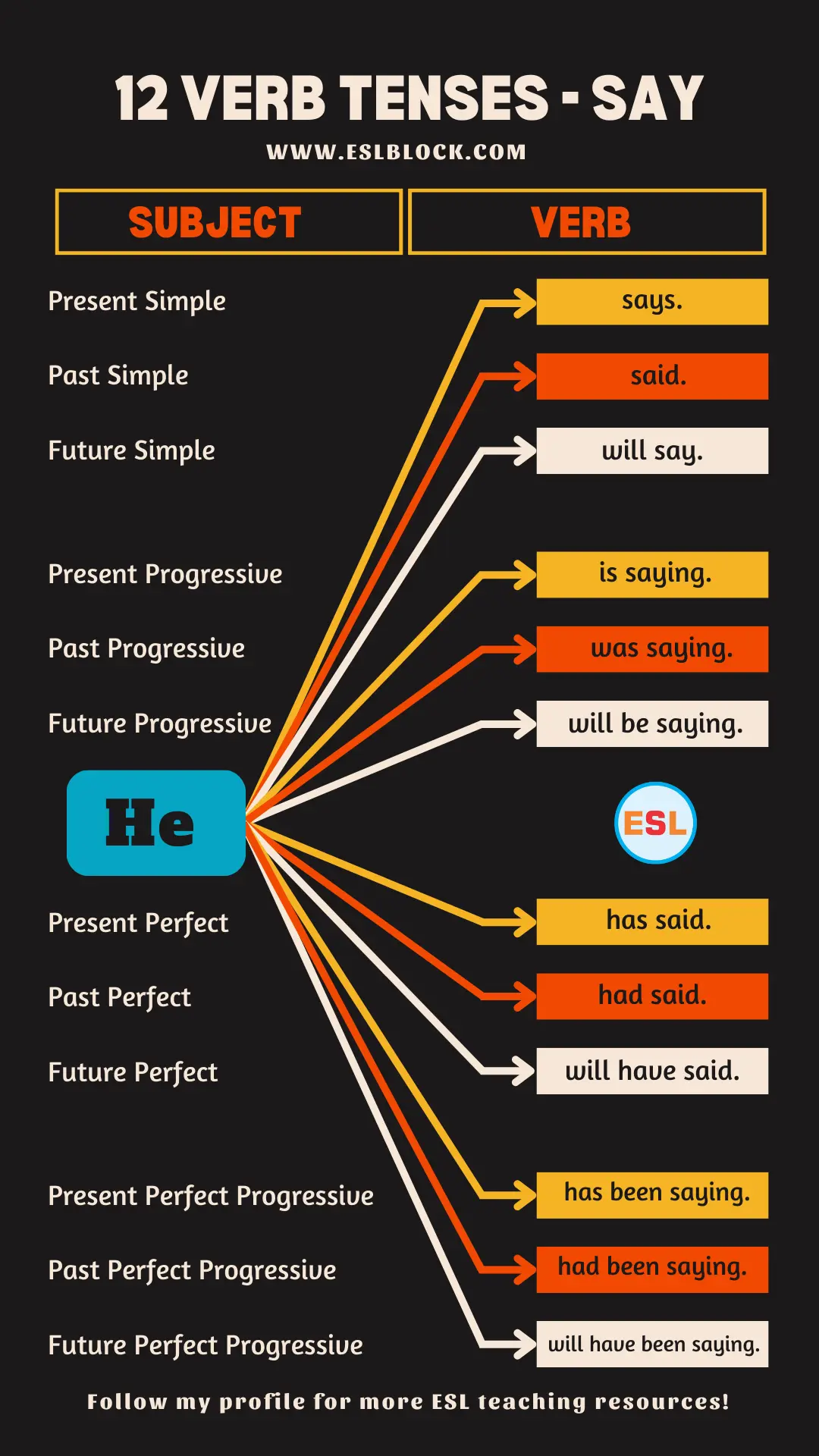
Present Tense
- I say
- You say
- He/She/It says
- We say
- You (plural) say
- They say
Past Tense
- I said
- You said
- He/She/It said
- We said
- You (plural) said
- They said
Future Tense
- I will say
- You will say
- He/She/It will say
- We will say
- You (plural) will say
- They will say
Present Continuous Tense
- I am saying
- You are saying
- He/She/It is saying
- We are saying
- You (plural) are saying
- They are saying
Past Continuous Tense
- I was saying
- You were saying
- He/She/It was saying
- We were saying
- You (plural) were saying
- They were saying
Future Continuous Tense
- I will be saying
- You will be saying
- He/She/It will be saying
- We will be saying
- You (plural) will be saying
- They will be saying
Present Perfect Tense
- I have said
- You have said
- He/She/It has said
- We have said
- You (plural) have said
- They have said
Past Perfect Tense
- I had said
- You had said
- He/She/It had said
- We had said
- You (plural) had said
- They had said
Future Perfect Tense
- I will have said
- You will have said
- He/She/It will have said
- We will have said
- You (plural) will have said
- They will have said
Present Perfect Continuous Tense
- I have been saying
- You have been saying
- He/She/It has been saying
- We have been saying
- You (plural) have been saying
- They have been saying
Past Perfect Continuous Tense
- I had been saying
- You had been saying
- He/She/It had been saying
- We had been saying
- You (plural) had been saying
- They had been saying
Future Perfect Continuous Tense
- I will have been saying
- You will have been saying
- He/She/It will have been saying
- We will have been saying
- You (plural) will have been saying
- They will have been saying
Also Check: 5 Free American Historical Romance Books to Improve Your English
Example Sentences
Explore the usage of the verb “say” through these 12 example sentences.
- Every morning, she says “good morning” with a smile. (Present Simple)
- Yesterday, they said they would join us for dinner. (Past Simple)
- By next week, he will have said his vows at the wedding. (Future Perfect)
- Currently, we are saying our opinions in the team meeting. (Present Continuous)
- The professor said interesting facts during the lecture. (Past Simple)
- By this time next year, they will be saying farewell to their colleagues. (Future Continuous)
- I have just said I’ll be attending the conference. (Present Perfect)
- Before the event started, she had already said her opening remarks. (Past Perfect)
- By the end of the month, they will have said their goodbyes. (Future Perfect)
- The children are happily saying rhymes in the school play. (Present Continuous)
- As a child, he often said funny things that made everyone laugh. (Past Simple)
- In a few months, the spokesperson will be saying the company’s new vision. (Future Continuous)
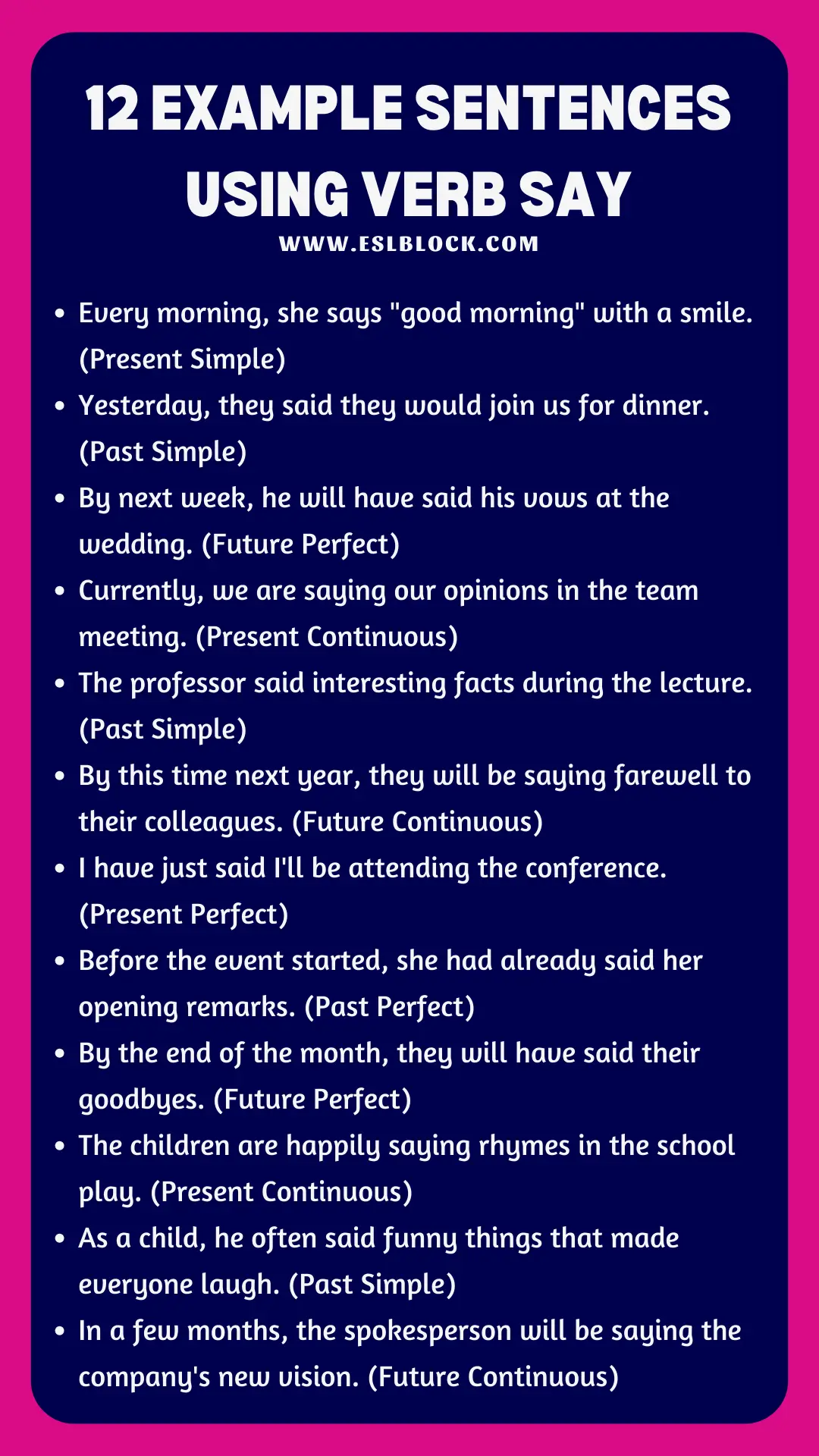
Conclusion
Mastering “Say Verb Forms” is akin to unlocking the door to effective communication. For ESL learners seeking proficiency in English tenses, the ESL Block provides a haven of knowledge. As every utterance transcends time, understanding the nuances of saying becomes paramount, and ESL Block stands as the beacon for those navigating the intricate paths of English language mastery. Embrace the diversity of expression through time with a firm foundation in Say Verb Forms.
If you have enjoyed “Say Verb Forms” I would be very thankful if you’d help spread it by emailing it to your friends or sharing it on Twitter, Instagram, Pinterest, or Facebook. Thank you!
ESLBLOCK will teach you new things. If you have questions about Say Verb Forms, Say Past Tense, Say Present Tense, Say Future Tense, you can ask us in the comments section of our blog. Come back often! We will try to answer you quickly. Thank you!
Also Read:
Recap of what we just learned
- Say Verb Forms
- Say Verb Forms V1 V2 V3 V4
- Conjugation of Say Verb
- Example Sentences Using Say Verb Forms
Related Articles
Here are some more lists for you!

